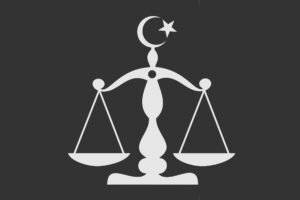Legal Judgments Favoring Men in False Rape Accusations and the Evolution of Section 377 in India
Written by Chhajed Ruchita Ishwar Sunita
Introduction
False rape accusations and Section 377 of the Indian Penal Code have been subjects of significant legal discourse. This article delves into landmark judgments where men were acquitted in false rape cases and examines key cases that contributed to the evolving interpretation of Section 377, decriminalizing consensual homosexual relationships.
Judgments in Favor of Men in False Rape Cases:
- State of Punjab v. Gurmit Singh:
– In this landmark case, the Supreme Court emphasized the importance of establishing the truth beyond a reasonable doubt. Gurmit Singh was acquitted due to inconsistencies in the survivor’s testimony and a lack of concrete evidence. The court highlighted the need to prove rape charges beyond a reasonable doubt, preserving the presumption of innocence for the accused.
- State of Haryana v. Bhateri:
– Bhateri was acquitted due to significant inconsistencies in the survivor’s statements. The court noted a lack of medical evidence to substantiate the rape allegations, underlining the importance of strong and consistent evidence in rape cases.[1]
- State of Karnataka v. Krishnappa:
– The accused in this case was acquitted because the prosecution failed to provide reliable evidence to prove the rape charges. The judgment emphasizes the necessity of compelling evidence to secure a conviction in rape cases.
- State of Maharashtra v. Madhukar Narayan Mardikar:
– In this case, inconsistencies in the survivor’s testimony raised doubts about the veracity of the rape allegations. Madhukar Narayan Mardikar was acquitted, highlighting the significance of consistent and corroborated evidence.
- State of Himachal Pradesh v. Paras Ram:
– Paras Ram was acquitted due to discrepancies in the survivor’s testimony, further emphasizing the need for a rigorous examination of evidence in rape cases.
- Section 377 Relevant Case:
- Navtej Singh Johar v. Union of India:
– In this groundbreaking case, the Supreme Court of India decriminalized consensual homosexual relationships among adults. The court upheld the right to privacy and individual autonomy, declaring that Section 377 cannot be used to discriminate against LGBTQ+ individuals. This judgment marked a significant shift in the legal landscape, securing equal rights for the LGBTQ+ community.
- Detailed Analysis: Judgments in Favor of Men in False Rape Cases
- State of Punjab v. Gurmit Singh:
The case of Gurmit Singh’s acquittal stands as a powerful precedent in false rape accusations. In this instance, the court found inconsistencies in the survivor’s testimony, casting doubt on the accuracy of the rape allegations. Additionally, the lack of concrete evidence to substantiate the charges further underlined the need for a high standard of proof in criminal cases, particularly in rape cases. This judgment reasserted the fundamental principle that an accused is presumed innocent until proven guilty beyond a reasonable doubt.
- State of Haryana v. Bhateri:
Bhateri’s acquittal hinged on the substantial inconsistencies in the survivor’s statements. The court identified a crucial lack of medical evidence to support the rape allegations, which led to doubts about their accuracy. This case reinforced the importance of strong and consistent evidence in rape cases, as merely making an accusation is insufficient to secure a conviction.
- State of Karnataka v. Krishnappa:
In this case, the prosecution’s failure to provide reliable evidence resulted in the acquittal of the accused, Krishnappa. The judgment underscored the necessity of compelling evidence to establish guilt in rape cases. It emphasized that the burden of proof lies with the prosecution, and without robust evidence, accusations alone cannot lead to convictions.
- State of Maharashtra v. Madhukar Narayan Mardikar:
Madhukar Narayan Mardikar’s acquittal was primarily attributed to the inconsistencies found in the survivor’s testimony during the trial. The court also observed a lack of corroborative evidence, which raised doubts about the veracity of the rape allegations. This case serves as a stark reminder of the importance of consistent and corroborated evidence in establishing guilt.
- State of Himachal Pradesh v. Paras Ram:
Paras Ram’s acquittal stemmed from the discrepancies found in the survivor’s testimony. These discrepancies cast significant doubts on the accuracy of the rape allegations. The judgment highlights the necessity of conducting a thorough examination of evidence and ensuring that doubts are resolved in favor of the accused, in line with the principle of “innocent until proven guilty.”
- Detailed Analysis: Section 377 Relevant Case
- Navtej Singh Johar v. Union of India:
The Navtej Singh Johar case marked a monumental shift in Indian jurisprudence. The Supreme Court’s decision to decriminalize consensual homosexual relationships among adults addressed a long-standing injustice against the LGBTQ+ community. The court upheld the right to privacy and individual autonomy, asserting that Section 377 could not be employed to discriminate against LGBTQ+ individuals. This judgment effectively removed the stigma associated with same-sex relationships and secured equal rights for the LGBTQ+ community.
- Conclusion:
These judgments and the Navtej Singh Johar case underscore the critical principles of justice, due process, and the protection of individual rights. They emphasize the need for compelling evidence in criminal cases, particularly in rape allegations, and advocate for equal rights and non-discrimination in matters of sexual orientation. The legal landscape in India is continuously evolving, and these cases serve as vital milestones in the pursuit of justice and equality.
- References
- Rape by a False Promise to Marry: A case-law non-offence
- 10 Landmark Judgments by the Supreme Court of India
[1] State Of Maharashtra And Another vs Madhukar Narayan Mardikar on 23 October 1990
[2] The State Of Punjab vs Gurmit Singh & Ors on 16 January 1996
Keywords: Favouring Men in False Rape, Favoring Men in False Rape in India




